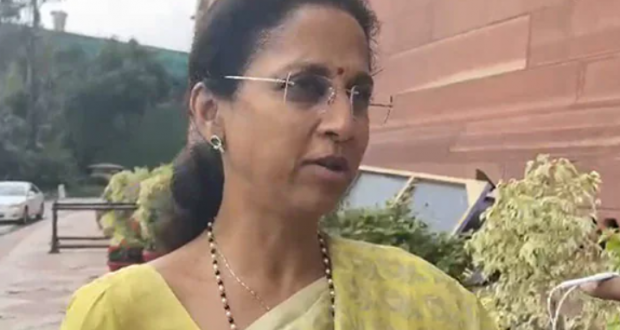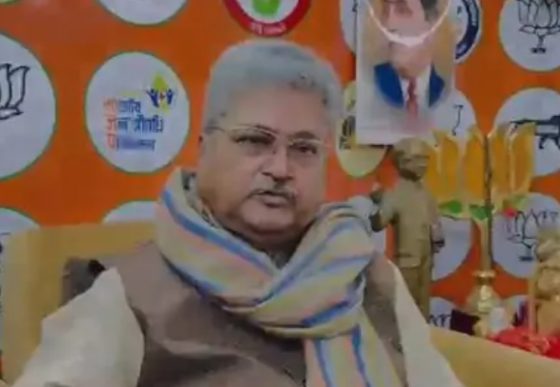DAINIK NATION BUREAU : The Nationalist Congress Party (NCP), one of the prominent political parties in India, is currently experiencing internal turmoil as a prominent leader, Supriya Sule, has sought the disqualification of Members of Parliament (MPs) Praful Patel and Sunil Tatkare for their alleged involvement in anti-party activities. The rift within the NCP has raised concerns about party unity and stability, as well as the impact it may have on the political landscape. This development highlights the challenges political parties face in maintaining cohesion and managing divergent interests within their ranks.
The NCP, founded by Sharad Pawar in 1999, has been a key player in Indian politics, particularly in Maharashtra. However, recent events have led to a visible rift within the party. Supriya Sule, the daughter of Sharad Pawar and a prominent NCP leader, has taken a strong stance against Praful Patel and Sunil Tatkare, both influential party MPs, accusing them of engaging in activities detrimental to the party’s interests.
Allegations of Anti-Party Activities: Supriya Sule has filed a formal complaint seeking the disqualification of Praful Patel and Sunil Tatkare, citing their alleged involvement in anti-party activities. While the specific details of these activities have not been disclosed, it is believed that the MPs have been engaged in actions that go against the party’s objectives and have undermined its unity.
Internal Party Discord and Political Implications: The rift within the NCP, fueled by Supriya Sule’s move to seek disqualification, has raised questions about the party’s internal dynamics and leadership. This development has the potential to impact the party’s image, public perception, and its overall electoral prospects. Furthermore, it underscores the challenges faced by political parties in managing internal dissent and striking a balance between individual ambitions and collective interests.
Supriya Sule’s Stand and Future of the NCP: Supriya Sule’s decision to take a firm stand against Praful Patel and Sunil Tatkare demonstrates her determination to maintain party discipline and uphold its core values. As a prominent leader within the NCP, her actions carry significant weight and could influence the party’s future course. The response of the party leadership and its ability to resolve internal conflicts will play a crucial role in determining the NCP’s trajectory in the coming months.
Impact on Maharashtra Politics: The NCP’s internal split has implications beyond the party itself, particularly in the state of Maharashtra, where it has been a key player. The political landscape in Maharashtra is already witnessing significant shifts, and this development adds another layer of complexity. It remains to be seen how the NCP manages this crisis and whether it can regain stability to maintain its relevance in Maharashtra’s political landscape.
Supriya Sule’s move to seek the disqualification of Praful Patel and Sunil Tatkare has further deepened the rift within the NCP, raising concerns about party unity and stability. The outcome of this internal conflict will have far-reaching implications, not only for the NCP but also for Maharashtra’s political landscape. As the party leadership grapples with the challenges posed by internal dissent, it is essential for them to prioritize unity, cohesion, and a collective vision to navigate through these turbulent times.
 Dainik Nation News Portal
Dainik Nation News Portal

